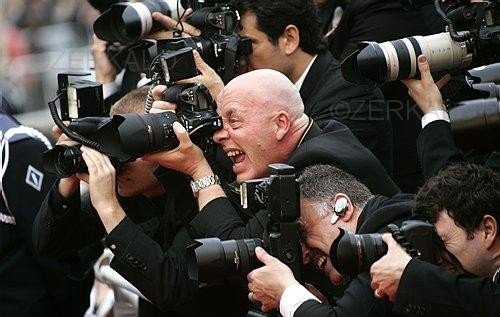Photography is the process, activity and art of creating still or moving pictures by recording radiation on a non-sensitive medium, such as a photographic film, or an electronic sensor. Light patterns reflected or emitted from objects activate a sensitive chemical or electronic sensor during a timed exposure, usually through a photographic lens in a device known as a camera that also stores the resulting information chemically or electronically. Photography has many uses for business, science, art, and pleasure.
Lens and mounting of a large-format camera.
A historic camera: the Contax S of 1949 — the first pentaprism SLR.
Nikon F of 1959 — the first 35mm film system camera.
Late Production Minox B camera with later style “honeycomb” selenium light meter
A portable folding reflector positioned to “bounce” sunlight onto a model
The word “photograph” was coined in 1839 by Sir John Herschel and is based on the Greek φῶς (photos) “light” and γραφή (graphé) “representation by means of lines” or “drawing”, together meaning “drawing with light”.[1] Traditionally, the products of photography have been called negatives and photographs, commonly shortened to photos
text source

Lens and mounting of a large-format camera.
A historic camera: the Contax S of 1949 — the first pentaprism SLR.
Nikon F of 1959 — the first 35mm film system camera.
Late Production Minox B camera with later style “honeycomb” selenium light meter
A portable folding reflector positioned to “bounce” sunlight onto a model
The word “photograph” was coined in 1839 by Sir John Herschel and is based on the Greek φῶς (photos) “light” and γραφή (graphé) “representation by means of lines” or “drawing”, together meaning “drawing with light”.[1] Traditionally, the products of photography have been called negatives and photographs, commonly shortened to photos
text source













